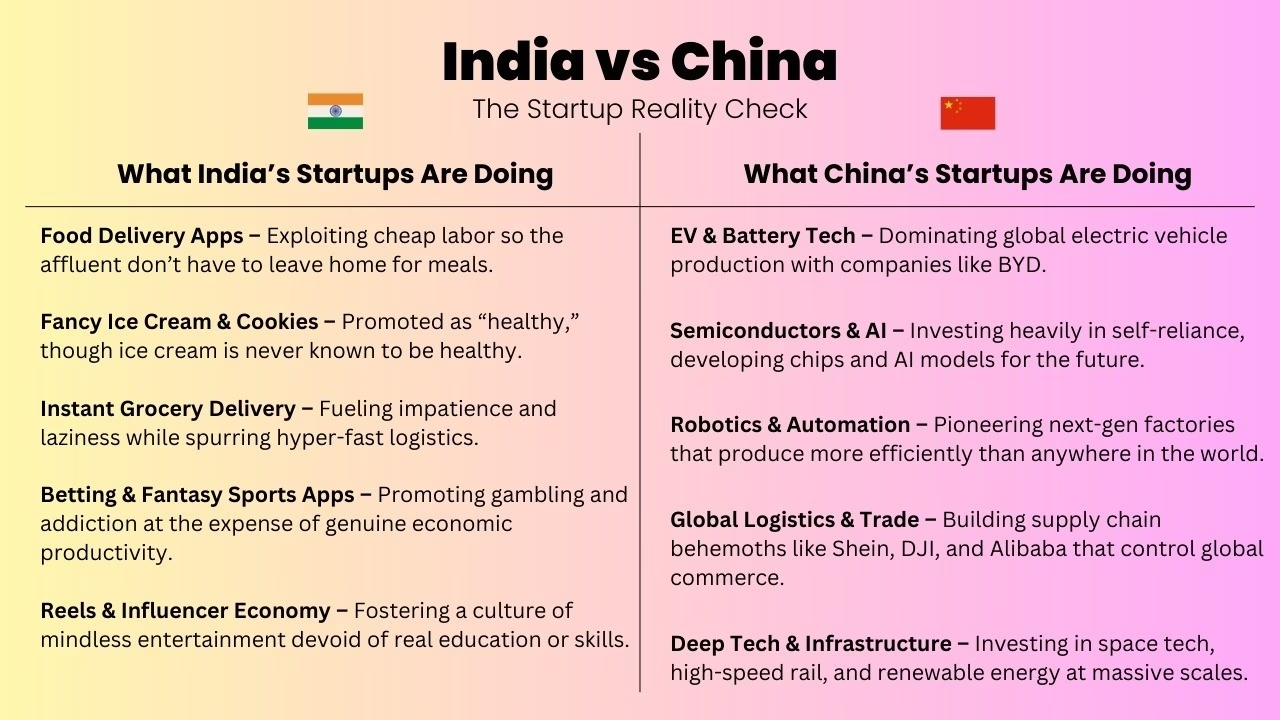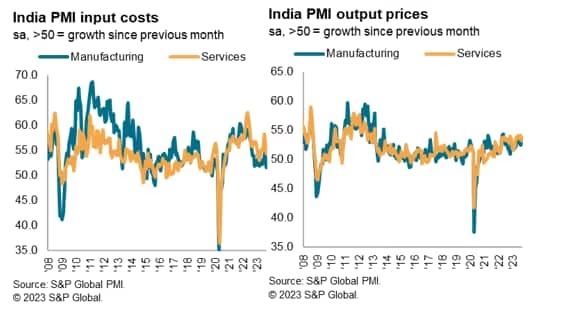Why are we lagging in innovation and research in India? This question sparks a national debate, engaging various societal segments, industries, and experts. The Bahujan community must contribute to this discussion. This article explores the factors hindering India’s progress in these vital areas, supported by data-driven examples and expert insights. This article will focus on Innovation and Research in India and what is holding it back.
Table of Contents:
- Innovation and Research in India Debate: A Minister's Perspective
- The Reality of Indian Startups
- The Response from Indian Entrepreneurs
- Core Issue: Boosting Innovation and Research in India
- The State of Indian Education
- The Distorted Priorities: Religion Over Research
- The Consequences of Neglect: Dependence on Foreign Technology
- What Can You Do?
Innovation and Research in India Debate: A Minister’s Perspective
The debate gained traction following statements by the Union Minister of Commerce and Industry. Known for his religious views and controversial remarks, the minister questioned the focus of Indian startups, contrasting them with their Chinese counterparts.
He pointed out that Indian startups primarily concentrate on food delivery, betting, and fantasy sports, while Chinese startups are advancing in electric vehicles, battery technology, semiconductors, and artificial intelligence.
Comparing Research in India and China

The minister highlighted China’s progress in India Research and Innovation, questioning whether India is content with merely producing ice cream and chips. He challenged the notion of India becoming a global power through small-scale ventures, urging a shift towards significant technological advancements. He questioned the role of reality show judges in promoting startups, advocating for support towards ventures that generate real value.
A Reality Check of Research in India After a Decade?
After a decade in power, the sudden realisation of the importance of scientific research and innovation raises questions. The minister’s remarks suggest a need to move beyond superficial industries and focus on long-term growth drivers.
Data reveals that his income increased by 181% since 2019, reaching approximately ₹101 crore, raising questions about the government’s priorities.
The Reality of Indian Startups
While the minister criticizes the focus on food delivery and betting startups, it’s essential to examine the broader startup landscape. The majority of successful startups are those run by spiritual leaders and astrologers.
These ventures have witnessed rapid growth, some facing legal challenges, while others maintain popularity even from behind bars.
The Baba Startup Ecosystem
The success of spiritual startups, particularly after the pandemic, has significantly transformed India. The rise of astrologers and spiritual gurus, leveraging technology, has created a parallel economy.
Additionally, startups run by absconding loan defaulters have also thrived, raising concerns about financial irregularities.
Historical Context and Global Dynamics
The minister’s concerns about India’s innovation lag coincide with global economic shifts and trade tensions. The rise of protectionist policies, exemplified by reciprocal tariffs imposed by the US, has put pressure on various countries, including India. Consequently, this external pressure has prompted a re-evaluation of India’s economic strategies and a renewed focus on self-reliance.
As the world edges towards a tariff war and potential economic downturns, there’s a growing understanding in India about the need for scientific advancement and technological independence.
The Response from Indian Entrepreneurs
In response to the minister’s statements, Indian entrepreneurs have voiced their opinions. Some argue that leaders need a reality check, while others highlight China’s initial focus on food delivery before transitioning to deep tech. These entrepreneurs express hope for a shift in focus from historical debates to scientific progress.
Historical Parallels and Future Directions
Entrepreneurs emphasize that China also started with food delivery and gradually transitioned to deep tech. They express hope for a shift towards science and technology. But most people are busy in old debates of temples, mosques, past traditions and worships and tantra mantra. There is no hope that people will leave all this anytime soon.
The Role of Government Support
Some entrepreneurs question the government’s role in promoting technology companies. They ask what the ministry has done to promote robotics, automation, and electric vehicles. Investment is not equal to China. There are no Government facilities for this. Need to end Babu Raj (Bureaucratic Red Tape). These are problems of the industrialist.
Core Issue: Boosting Innovation and Research in India
The central question remains: Why aren’t innovators and researchers emerging in India? And if they do, why do they leave? The primary reason lies in the absence of a robust academic system. India lacks the university network, research labs, and funding necessary for students to pursue long-term research projects.
The Caste-Based Education System
India’s education system, instead of fostering scientific inquiry, perpetuates a caste-based hierarchy. This system ensures that only certain caste groups advance, while others are left behind. The majority of the population is excluded from the education system, hindering the development of scientific talent.
Read the IIT IIM Reservations to know more about it.
Hindrances to Innovation
Research and innovation require open minds and critical thinking. However, in India, these are stifled by religious extremism, superstition, and a rigid caste system. Even in top universities like IITs and IIMs, people engage in superstitious practices, hindering the development of a scientific temper.
The State of Indian Education
The education sector, responsible for nurturing research and innovation, faces significant challenges. Reports show that upper castes dominate prestigious colleges, leaving Dalits and Adivasis underrepresented.
The dropout rate is increasing because of caste discrimination. This inequality undermines the potential for diverse perspectives and innovative thinking.

The Reality of Graduates
The curriculum is designed to perpetuate caste-based biases rather than fostering skills and knowledge relevant to the modern world. This results in a workforce ill-equipped for research and innovation.
The Impact of Underfunding and Caste Bias
The education system is plagued by underfunding and caste bias, leading to high dropout rates. The pursuit of education is becoming increasingly expensive, further marginalizing disadvantaged groups. The lack of resources and opportunities in education directly impacts the country’s ability to foster research and innovation.
The Distorted Priorities: Religion Over Research
India’s focus on religious activities and symbolism often overshadows the importance of scientific research. Incidents like scientists attributing earthquakes to meat consumption and promoting cow urine as a cure for fever reflect a distorted understanding of science. These comments are not from uneducated people, these are from MDs and chairmen of top institutions in India.
The Promotion of Superstition
The comparison of questionnaires of pollution in gangajal to pigs and vultures discourages scientific inquiry. The prioritisation of religious slogans over critical questioning hinders the growth of a rational and innovative society. Such incidents highlight the challenges faced by rationalists and scientists in India, some even facing violence for their views.
The Contrast with China’s Approach
In contrast, China focuses on developing AI reasoning models and investing heavily in cutting-edge technologies. The country’s commitment to scientific advancement underscores its dedication to progress and innovation, while India lags behind due to its focus on divisive issues and religious symbolism.
The Consequences of Neglect: Dependence on Foreign Technology
India’s neglect of research and innovation has led to a reliance on foreign technology. The country imports expensive and often inferior technology from countries like China and the US. This dependence undermines India’s self-reliance and hinders its ability to compete on the global stage.
The Economic Impact
The lack of innovation has resulted in a service sector-driven economy, with limited growth in manufacturing.

This imbalance makes India vulnerable to external economic pressures and trade wars. The country’s economic fragility is further exposed by its dependence on foreign powers for essential technologies and resources.
Historical Data and Current Realities
Data reveals a significant disparity between India and China in terms of unicorns and GDP. While China has witnessed exponential economic growth, India struggles to keep pace, highlighting the consequences of neglecting Innovation and Research in India.
What Can You Do?
The path to progress requires a collective effort. As citizens, we must:
- Advocate for increased investment in scientific research and education.
- Promote critical thinking and rational inquiry in our communities.
- Challenge caste-based discrimination and promote equal opportunities for all.
- Demand accountability from leaders and policymakers.
- Support ventures that promote India Research and Innovation and address societal challenges.
By embracing a culture of inquiry, equality, and innovation, India can unlock its true potential and emerge as a global leader in the 21st century.
Disclaimer:
This article discusses sensitive topics such as caste discrimination, religious extremism, and violence. The views expressed herein are intended to promote critical thinking and do not endorse any particular ideology. Common terms used in this article are defined as follows:
- Research and Innovation: The process of creating new knowledge and translating it into practical applications.
- Bahujan Community: Refers to Scheduled Castes (SC), Scheduled Tribes (ST), and Other Backward Classes (OBC) in India.
- Startup: A newly established business venture, often focused on technology or innovation.
- GDP: Gross Domestic Product, a measure of a country’s economic output.
- Unicorn: A privately held startup company valued at over $1 billion.
Read more about how Casteism led to corruption in the Indian Judiciary.
Do you disagree with this article? If you have strong evidence to back up your claims, we invite you to join our live debates every Sunday, Tuesday, and Thursday on YouTube. Let’s engage in a respectful, evidence-based discussion to uncover the truth. Watch the latest debate on this topic below and share your perspective!

